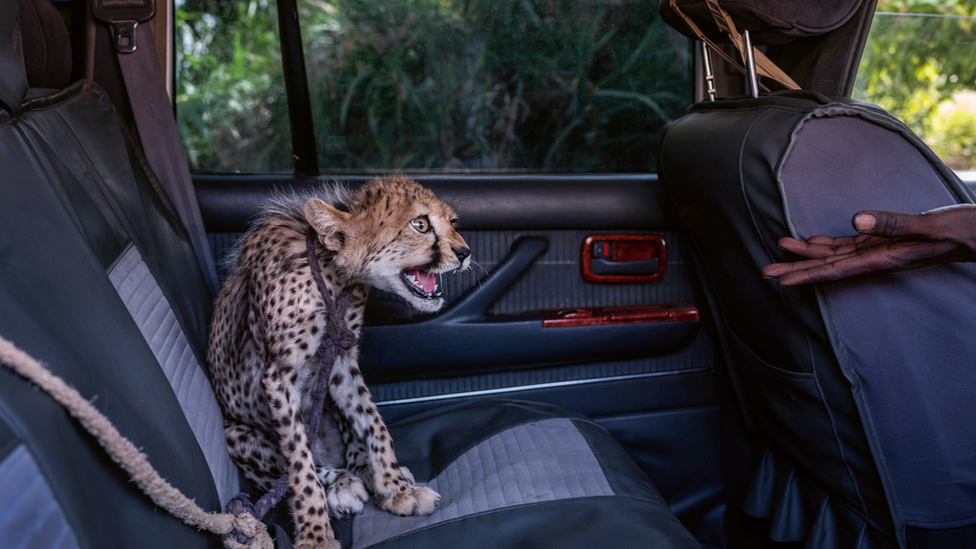Pictures explore why we take photos of animals
- Published

A new collection of wildlife photos has been released to explore why humans have taken pictures of animals in the past and what it means for their future. This photo highlights the issue of cheetahs being smuggled out of Africa and kept as pets. This seven-month-old cheetah is in the back of an SUV hissing at a rescuer鈥檚 hand after being brought to safety.
Here we can see birds in flight and the patterns they make over time. This work was created at Grand Teton National Park in Wyoming in 2019. Photographer Xavi Bou captured the swallows at many different times in a second and then stitched thousands of the pictures together. He says he hopes his work will help to connect more people with the beauty of nature. The collection of photographs taken over several years will be on display at the Cheltenham science festival in June.
How adorable is this photo? It's called Dalmatian puppies from the series Dog Gods which was published in 2010. The work focuses on our canine companions and how close we have been to them throughout history. It also looks at different dog breeds and how our relationship with them has changed over the years.
This picture of an arctic fox stealing a snow goose egg was taken on Wrangel Island in Russia in 2011. Photographer Sergey Gorshkov says while he is concerned for the future of many species, he is also seeing how hard humans are working to protect their habitats. He believes photography is a "powerful tool" in nature conservation.
Here we can see a diver photographing a huge school of fish underwater. It was taken in Mexico in 2015. Photographer Anuar Patjane says his photo has inspired some people to start scuba diving while others say it has helped them to lose their fear of what lies beneath the ocean. It is hoped pictures like this will help with sea conservation.
This photo from 2019 shows how honeybees have colonised a nest hole that had been made by a woodpecker in Germany. Over 100 photographers and their photos have been put together for a book called Why We Photograph Animals. Its author, Dr Huw Lewis-Jones who works at Falmouth University says that people photograph animals because "we love them", but also because "we realise the power of photography, hopefully to help animals too. If we don't know about something existing, it's very hard to care about it or want to protect it and photography definitely has the power to help as a force for good."
- Published1 October 2023
- Published8 January
- Published26 February
